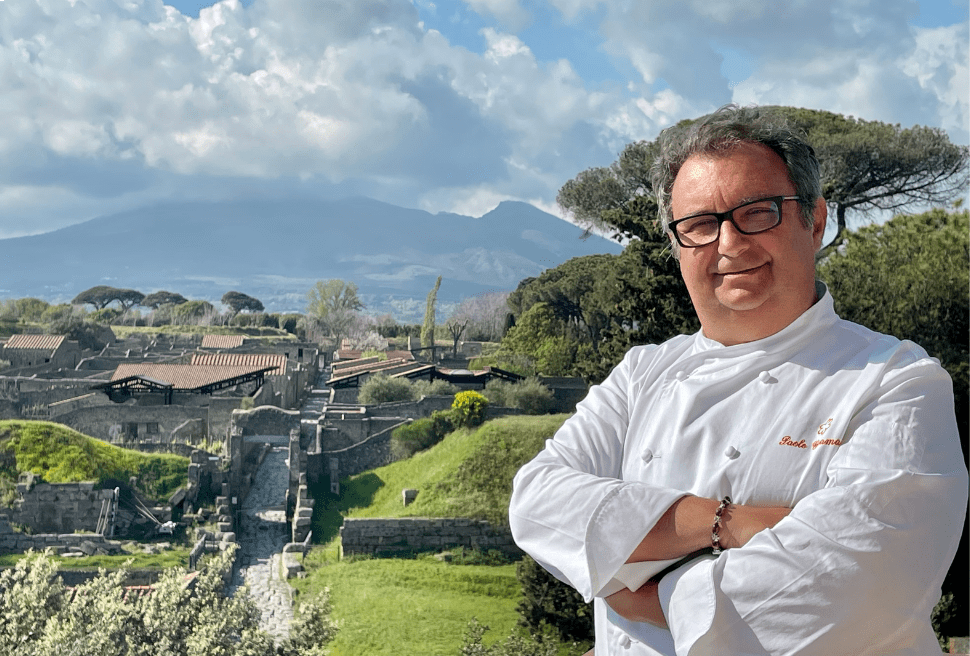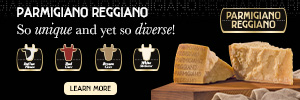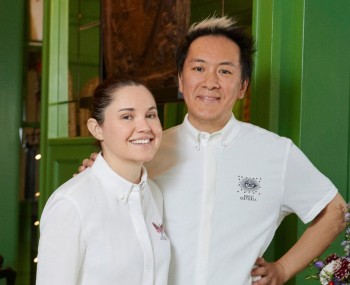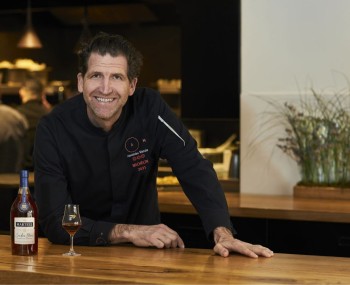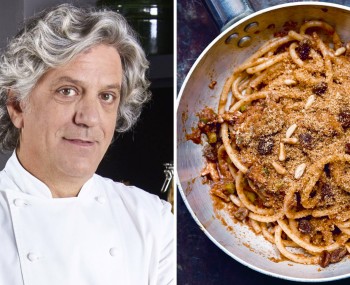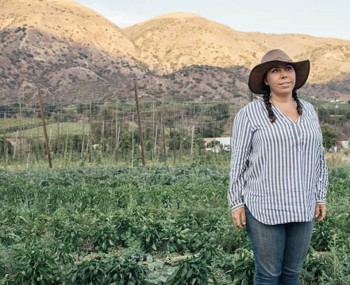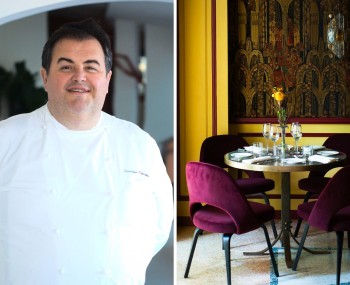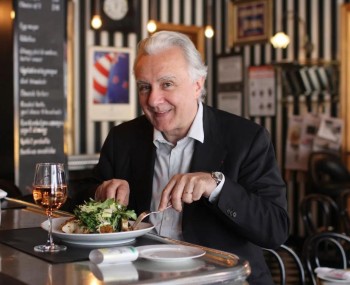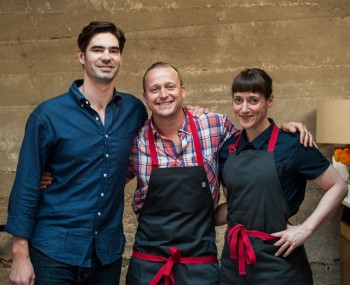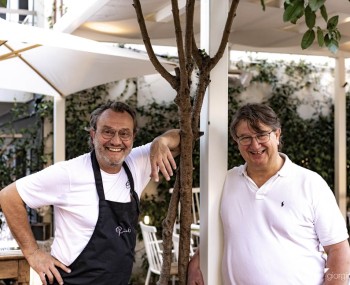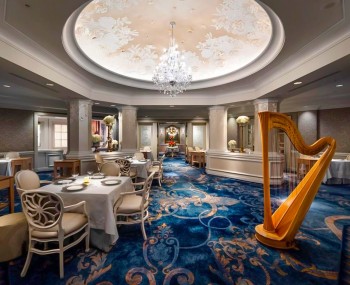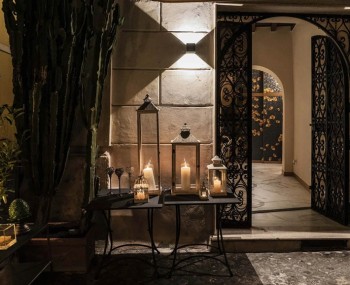Only five tables and 150 square meters make up Pompei's only MICHELIN-Starred restaurant, led by chef Paolo Gramaglia. A menu resembling a journey and the elegant presence of his wife Laila in the dining room give the perfect composition for an out-of-the-ordinary experience.
Ristorante President
The President is a restaurant in Pompeii that has been awarded with a Michelin Star for their hospitality and fine cuisine. Chef Paolo Gramaglia and his wife Laila resemble one of Plato’s tales during the symposium, speaking of men who were completely on their own, without ever finding their soulmate. Both are uniquely separate from each other; Paolo the chef is a creative mind who makes the traditions of Campania, and his life experiences the strongholds of his cuisine, while Laila, co-owner, and restaurant manager, was born to welcome and entertain guests. Both uniquely special on their own, make an explosive pair when working together.
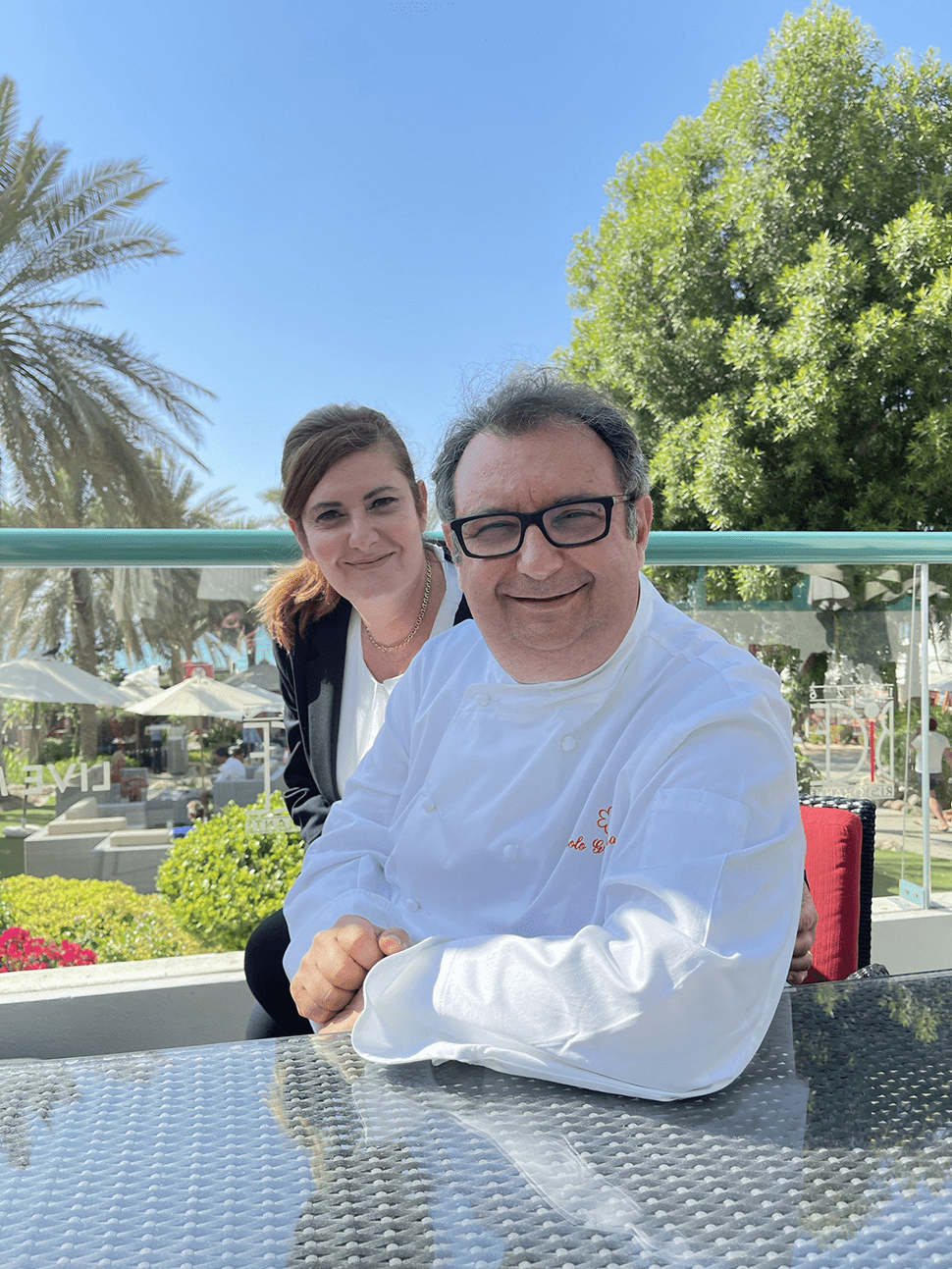
The restaurant
In both their personal lives and at work, the couple looks after the restaurant that was awarded the coveted Michelin star in 2015 as if it were their first-born son. The history of this restaurant, which is situated just around the corner from the archaeological sites of ancient Pompeii, started in 2006, when Gramaglia took over the lead. The President is a cozy space: parquet floors combined with white walls and tablecloths that line the room; all in just 150 square meters and with only five tables available. How come they have decided to keep the seating to just five tables, even though the width of the space would allow for a far greater number of guests to be seated? Very simple: Paul and Laila follow the self-created rule of subtract to multiply, according to which to maximize pleasure one must eliminate the superfluous.
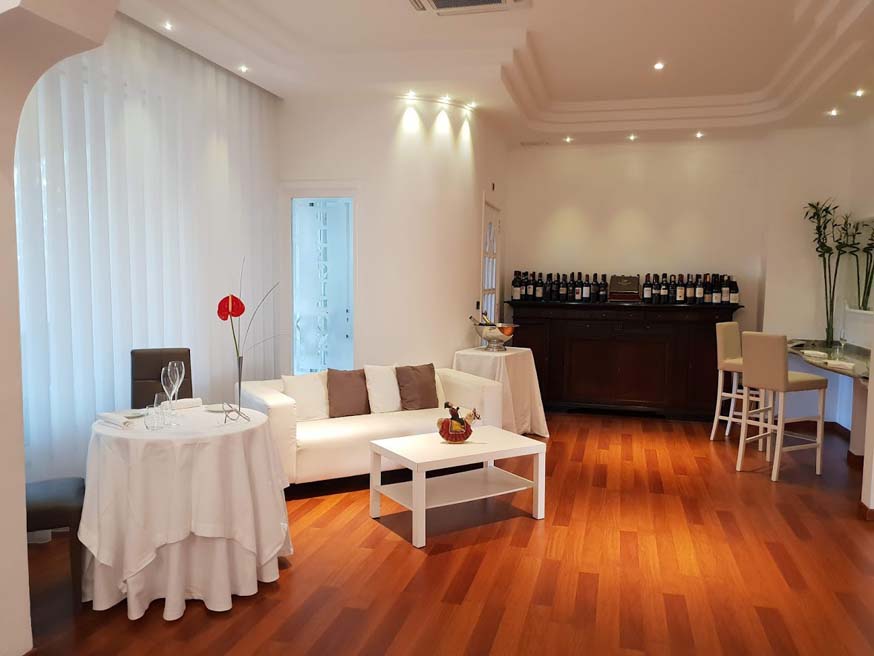
Thia principle holds true in both the dining room, where with fewer tables it is possible to devote more attention to those who choose to dine at President, and in the kitchen, where subtracting a few ingredients produces more authentic dishes. In good weather, which in Italy’s south is pleasantly long, the restaurant also enjoys a nice outdoor area that stands in a quiet space, isolated from city noise.
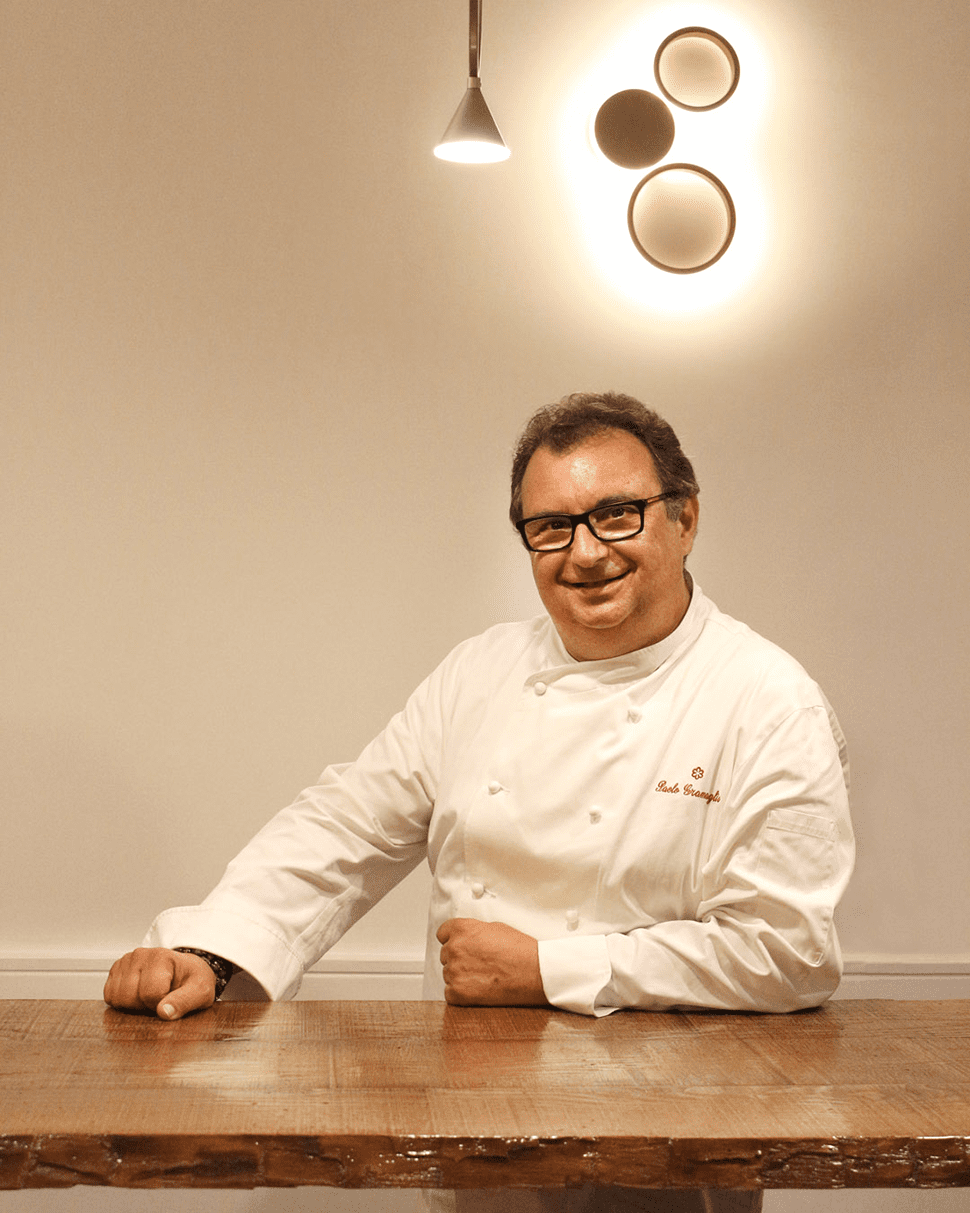
The dining room, as previously mentioned, is in the hands of of Laila Gramaglia, the chef's wife, and partner. With her husband she shares two daughters and a deep love for the profession that they carry out together, each maintaining their own role. The President is their second home, every detail is thought through and curated well, giving life to a project that maintains an increasingly high level of quality.
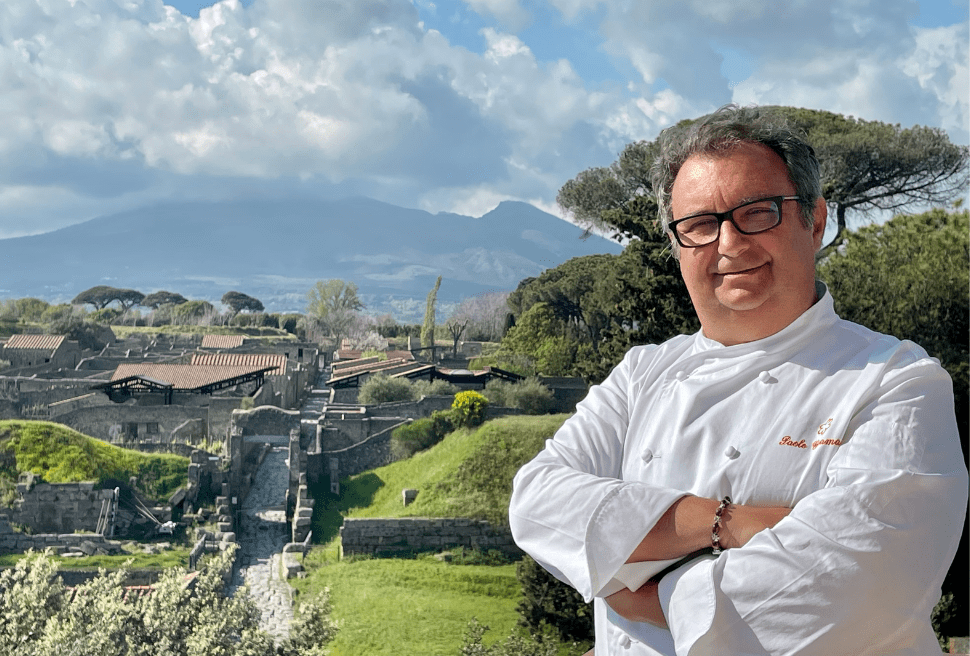
She used to be a lawyer, but the passion for gastronomy helped her make the change that brought her to where she is now and where she needed to be. Laila is above all, a sommelier. She curates and edits the wine list daily and, if needed, several times a day, so that she never falls behind on the beverage offerings. It is more than a wine list, that more likely seems to be an encyclopedia of wine. The cellar of President is an immense artwork that holds a vast variety of labels with a wide selection of regional, national, and foreign wines and a special list dedicated to Champagne.
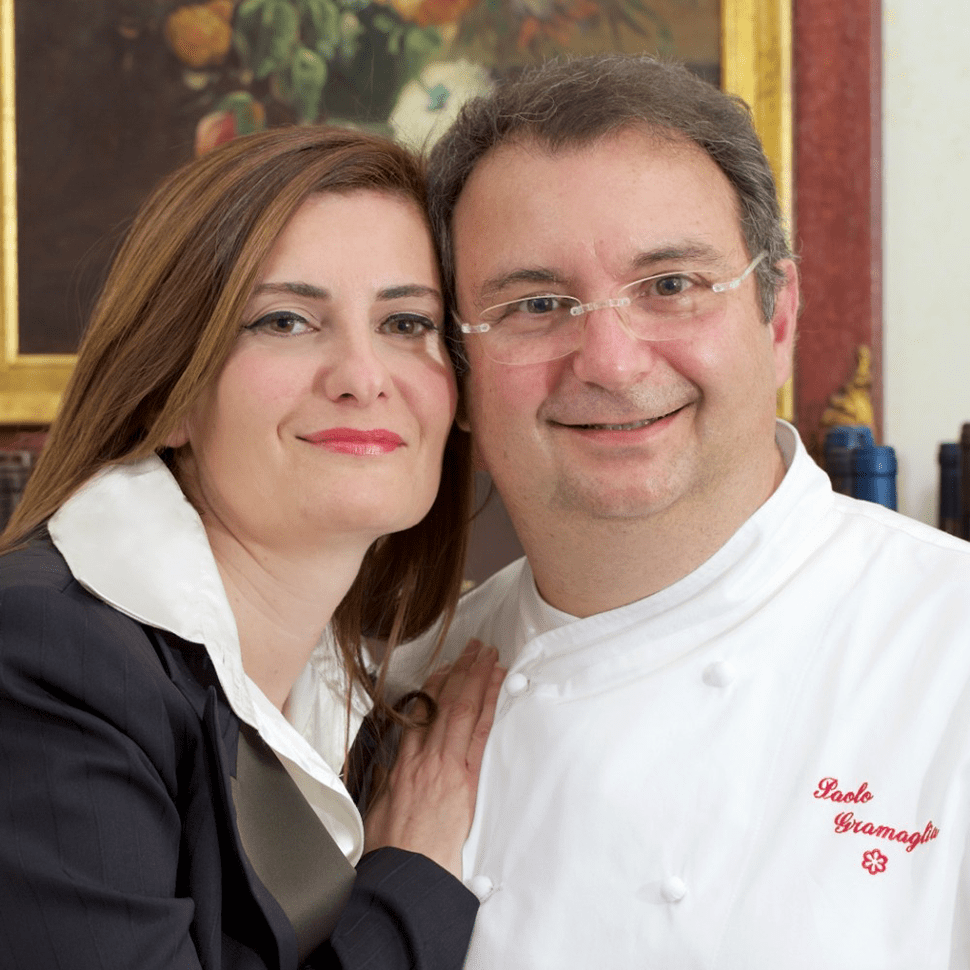
Laila does not limit herself to wines; thanks to her knowledge, she skillfully pairs her husband's dishes with different beverages that come from the remotest parts of the world. Among these a yuzu, a Japanese citrus liqueur, that the sommelier and co-owner serves as an accompaniment to an oriental dish, a pork-filled dumpling. Professionalism and love: this are what clearly fuels Laila Gramaglia and her work.
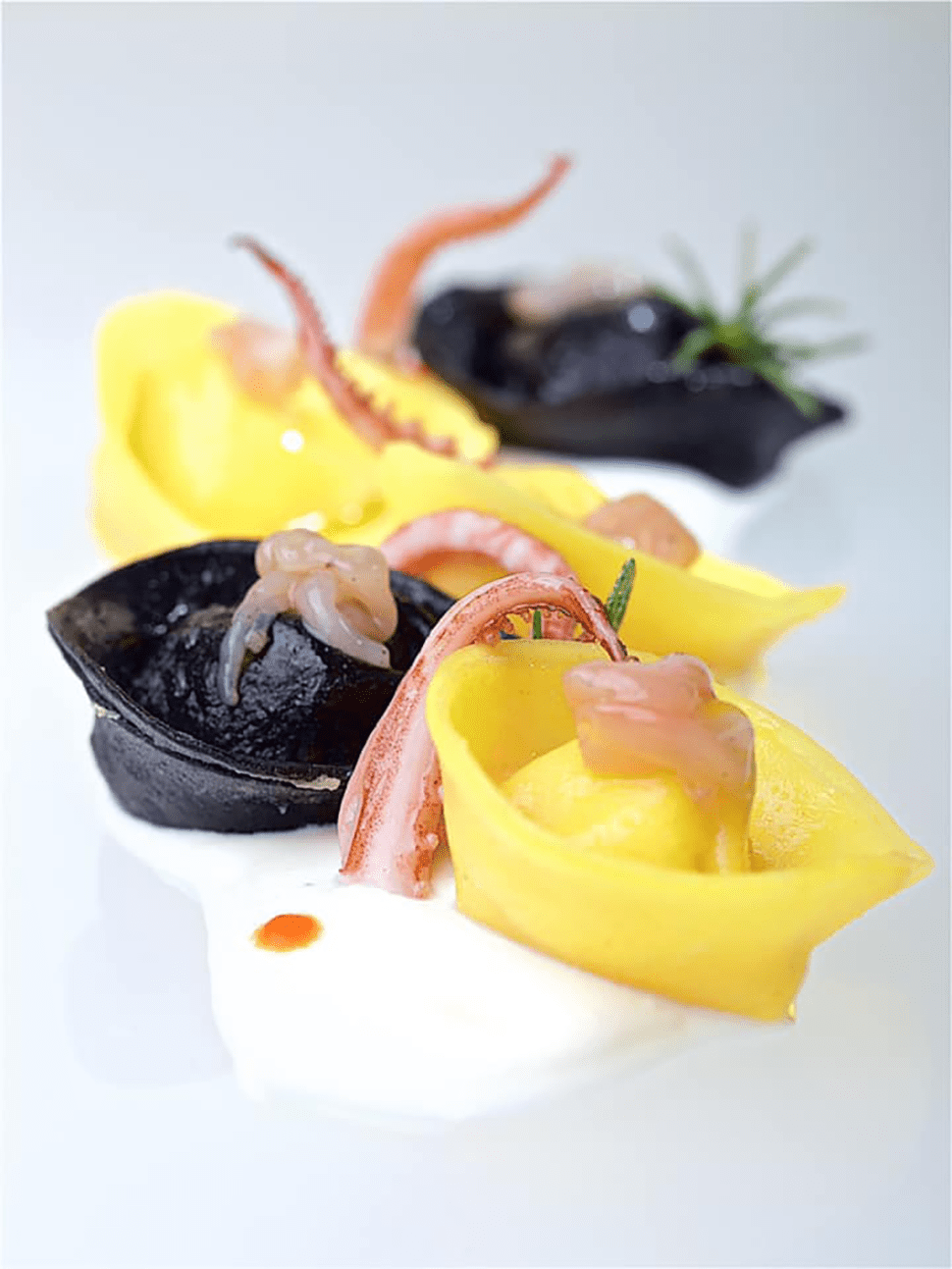
The kitchen
The kitchen is the temple of Paolo Gramaglia, who is already known in the fine dining industry not only for his Michelin-star but also for the numerous awards he has received from national and international guides. "Being awarded the Michelin star represents a great privilege and at the same time a great responsibility," says Paolo Gramaglia, "this important recognition leads every chef to adopt new points of view on cooking, with the understanding that the star cannot be considered only a point of arrival, but also and above all a starting point towards paths of ever greater professional development”.
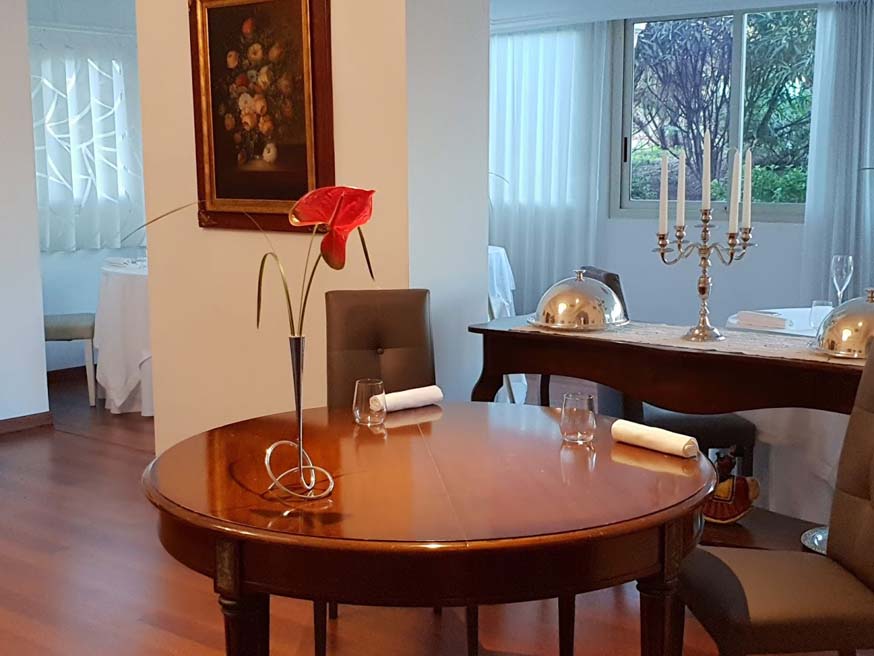
“It's a play on intensity and time." The current menu is dedicated to this very theme. It’s the time the chef has spent in travelling throughout his life that inspire his culinary identity. Experiences and joys destined to be given life through dishes that, whilst having distant origins, are nevertheless linked to the land where Paolo Gramaglia was born and in which he continues to live with his family. Space and time are the common threads in the dishes that the chef interprets and presents to his diners. "Traveling means having been to a place at least 10 times, working, cooking, bringing your own traditions while at the same time assimilating the customs of the place that hosts you. You can't travel without experiencing an influence on your dishes.”
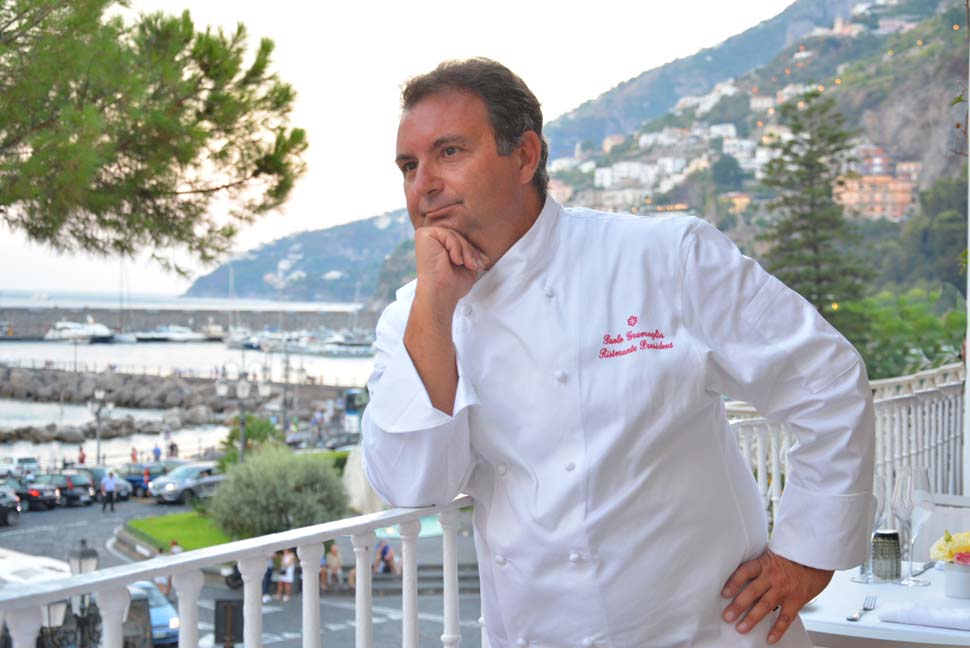
But which is the dish the chef feels most connected with? "All of them, because if I were to prepare one dish with less intensity than another, I would have to change my job. I don't like to use the term passion to describe what I do, because passion it is a feeling that lives on ups and downs, and for me cooking has only ups. I think and create even while I sleep." Chef Gramaglia doesn’t only express himself through President: there are various ongoing projects, such as running Palazzo Caracciolo in nearby Naples and a luxury hotel and restaurant in Venice. In addition to that he provides several consultancies abroad.
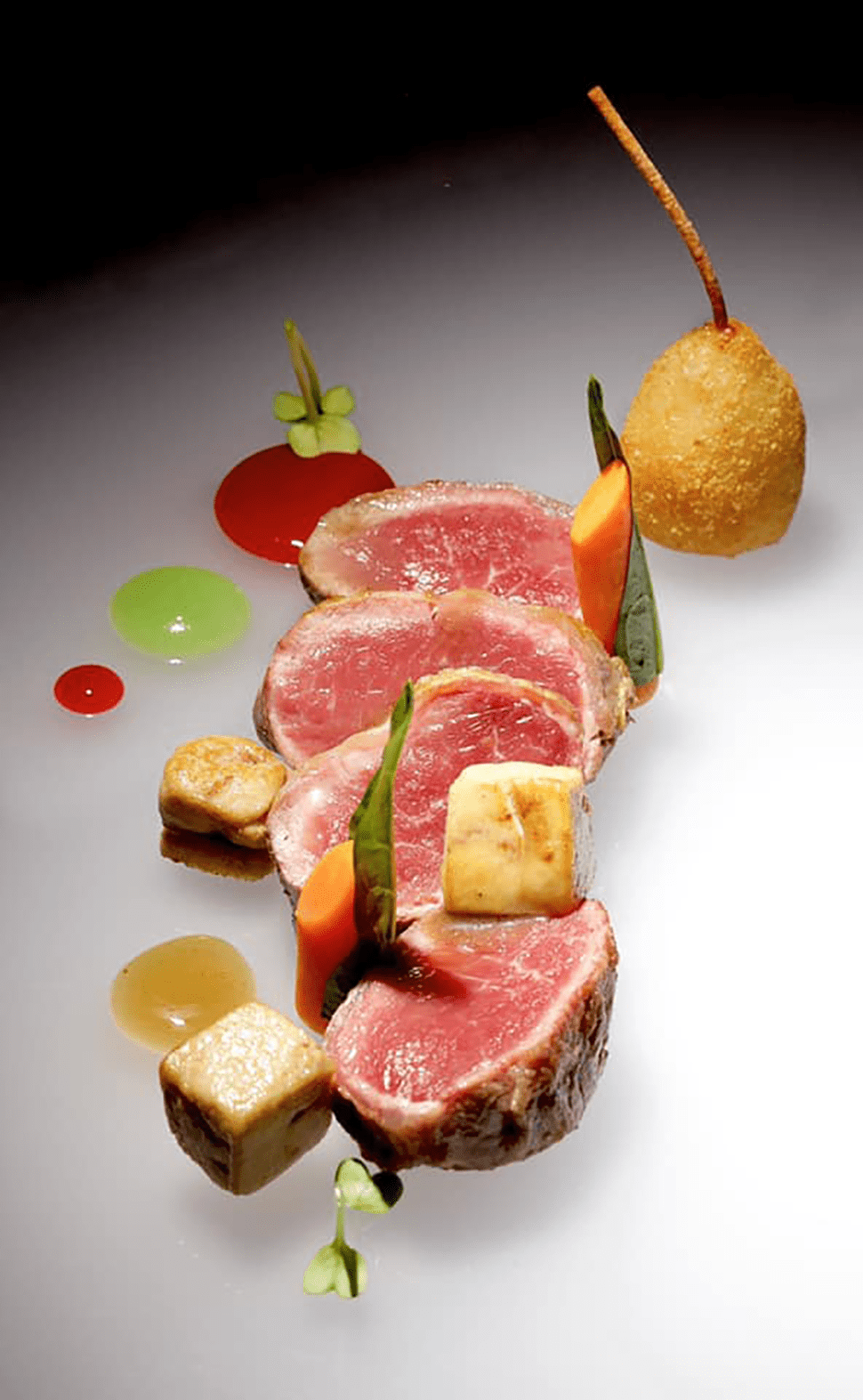
“I only leave the restaurant here in Pompeii when we are closed for our weekly rest, from Sunday evening until Tuesday. When guests come to dine, they must be able to find me here, and if they like to, they can meet me, because they come here to the President to taste my dishes." A chef who has great attention for customers and the dishes he creates, thinking and creating just for them and himself. "The success of gastronomy is in tradition; you just need to know how to interpret it without nostalgia." The traditional Campanian cuisine is the starting point for innovation and for an art that by chef is always considered as a process.
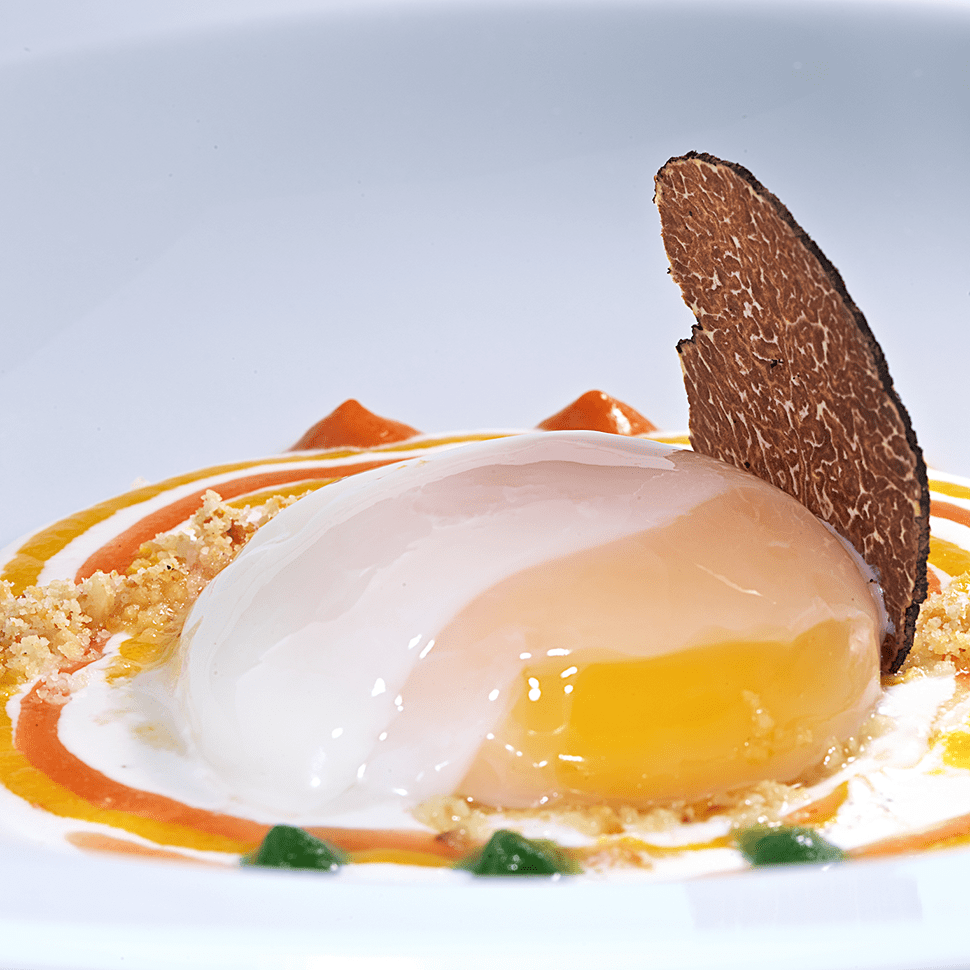
The dishes
“I am a chef from the south of Italy: I don't use butter in cooking, and I don't thicken sauces, because they’re already perfect as they are." Paolo Gramaglia jokes, while still pointing out a truthful aspect, because his cuisine borders on perfection. A menu dedicated to traveling, with a rich tasting menu that allows those who taste it to embark on the path taken by the chef, and a shorter tasting menu as well called Last Minute, still wandering but more precise. "To those who ask me what the must-have ingredient in my kitchen is, I answer, without hesitation, the journey." The journey through the President's dishes begins with an appetizer composed of a trinity in which the cherry tomato stands out, but when bitten truly unfolds its complex taste on the palate along with the cod; creamy and inviting. With the appetizer we reach a warm destination; the chef has lived in the Caribbean and the Ceviche is a reminder of that. The amberjack brings the dish back to the Mediterranean flavors delivering a delicate and fresh taste.
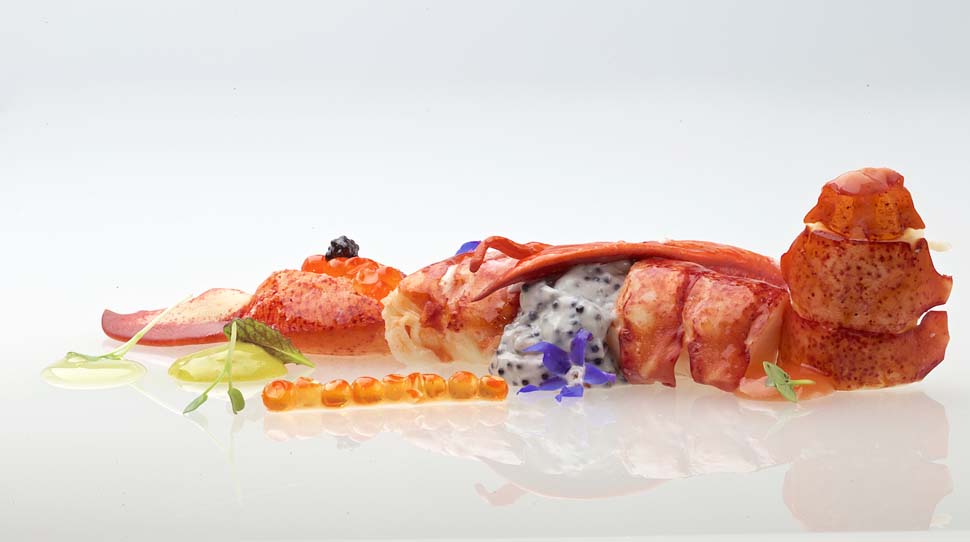 @Luciano Furia
@Luciano Furia
The journey, however, does not solely move through space to reach its destination, but also in time. With Satura we travel back 2,000 years. We find ourselves in Pompeii before the eruption of the volcano where this ancient cereal was eaten daily. At that time transformed into soup, while at the President it is served as a dry dish. Even the bread brings the mind back to what must have been the atmosphere of Pompeii's civilization and splendor.
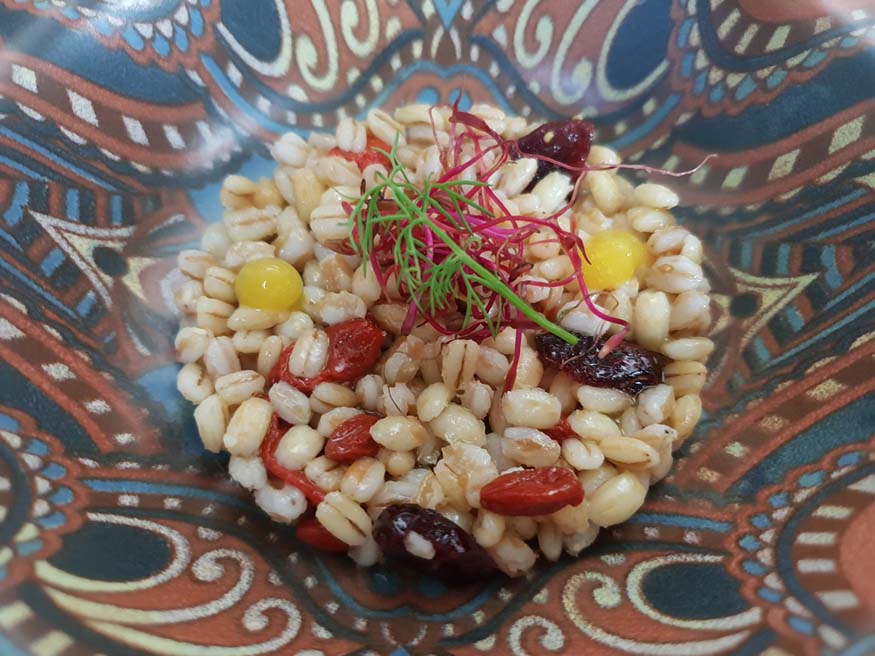
The bread was called Siligyneus; a round-shaped loaf, that had been baked the night before the disaster that engulfed the city in lava. The charred and conserved specimens became precious objects that are kept at the museum, but this bread, after thousands of years, is coming back to life on the President's table. Soft and mouthwatering, it is prepared with olive oil from the Cilento region, solely pressed from the Pisciottana olive, the same type that is used to make the accompanying oil cream. "This bread used to be broken by the pater familias and the largest portion was intended for the most important guest," says Laila Gramaglia. One leaves the Pompeii of old times and enters the Naples of years past, but you definitely come closer to the feeling of what it might have been like.
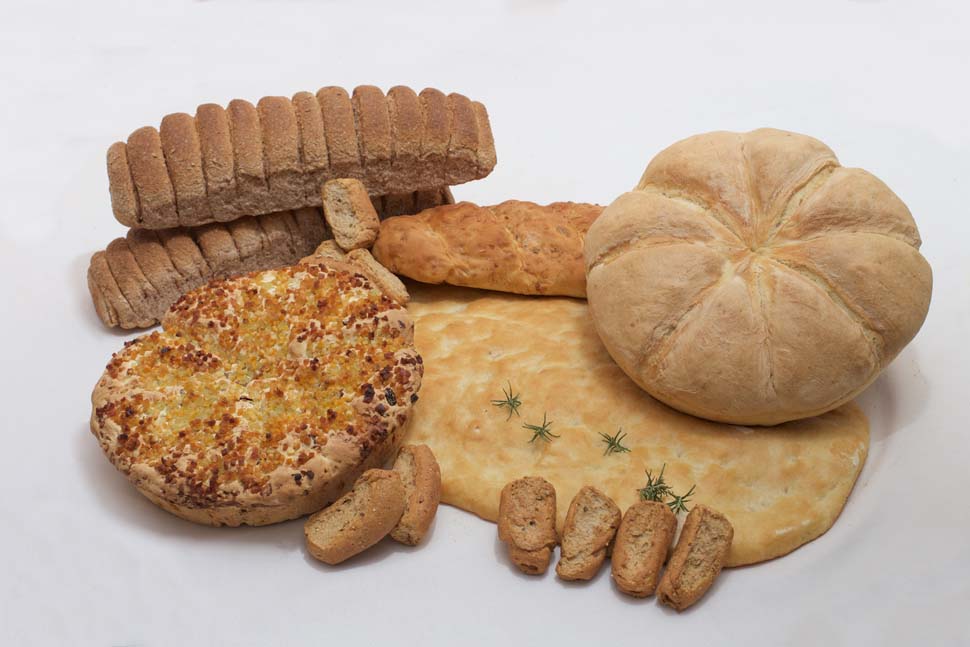 @Luciano Furia
@Luciano Furia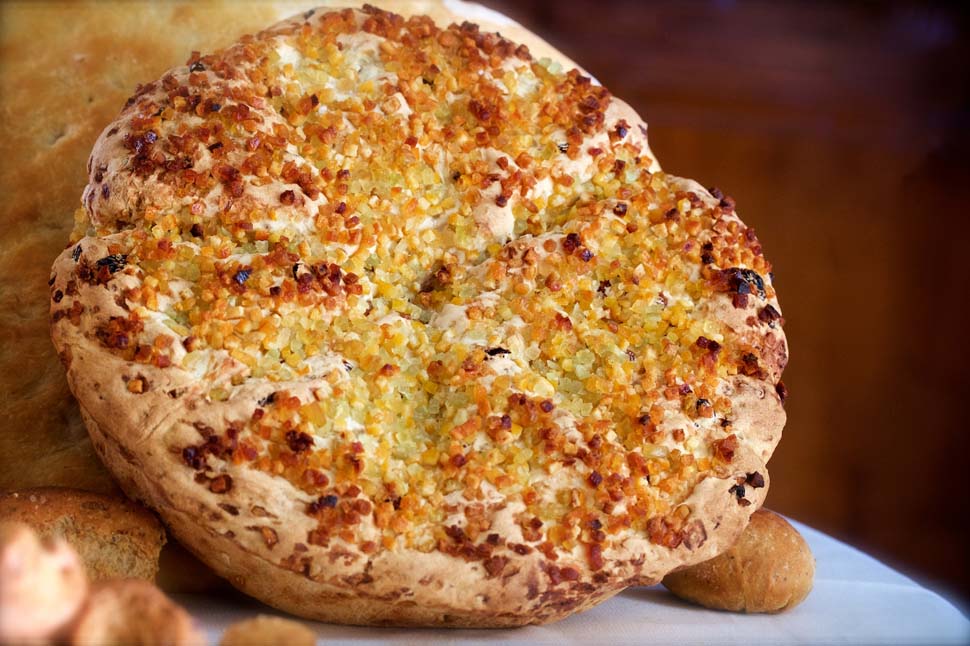 @Luciano Furia
@Luciano Furia
“Usually on Sundays, when I was a child, my family would wake up with their eyes 'shrouded in the mist' of smoke from artichokes roasting on charcoals. Seeing my mother already on the terrace early in the morning dedicated to roasting artichokes, while my sister and I ate breakfast, was a celebration for me, because I knew that day was going to be special. We would be with my parents, maybe take a walk by the sea or in the historic town center, and at lunchtime we would eat together. When the scent of the artichoke roasting on the charcoal would reach me, I already knew what was going to follow. That scent has remained in my mind and even more so in my soul; today you can also find it on my menu." Another dish, another journey that reaches the chef's childhood memories of being a child and eating traditional Neapolitan dishes prepared by his mother.
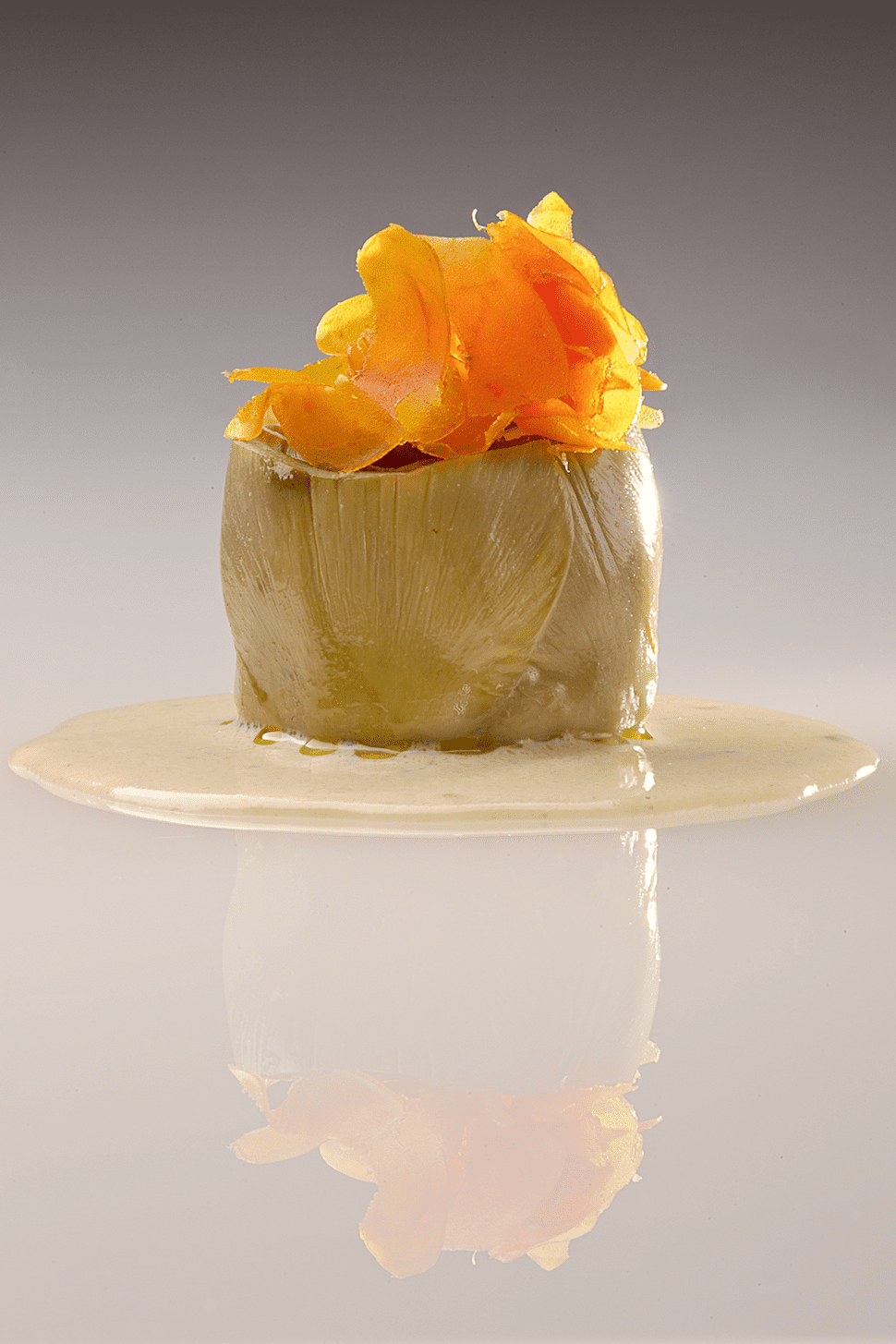
Thus comes the Schito Artichoke towards the sea (Carciofi di Schito is a special artichoke variety from a town called Schito), an artichoke cooked at a low temperature, served over a sauce of anchovies from Cetara, buffala from Cilento, Bottarga di muggine (salt cured Sardinian mullet roe) and the "smoke" of the roasted artichoke stem. The vegetable is brought to the table under a glass bell that when removed releases the very smoke that little Paolo Gramaglia must have perceived in Naples during his childhood. Tasty and made with incredible technique. Then, a turn to the East with a wind that smells of umami and dim sum. Umami reveals itself to be pork belly cooked, according to the tradition of northern China's Kumning area. The sweet and sour flavors blend with the Neapolitan flavors of friarelli (broccoli raab), and crispy pork skin chips round out the balance of the dish. Dim sum, on the other hand, is a typical pork-filled dumpling, mouthwatering, enjoyed together with yuzu with the citrus note that cleanses the palate of the fattiness of the richness of the filling.
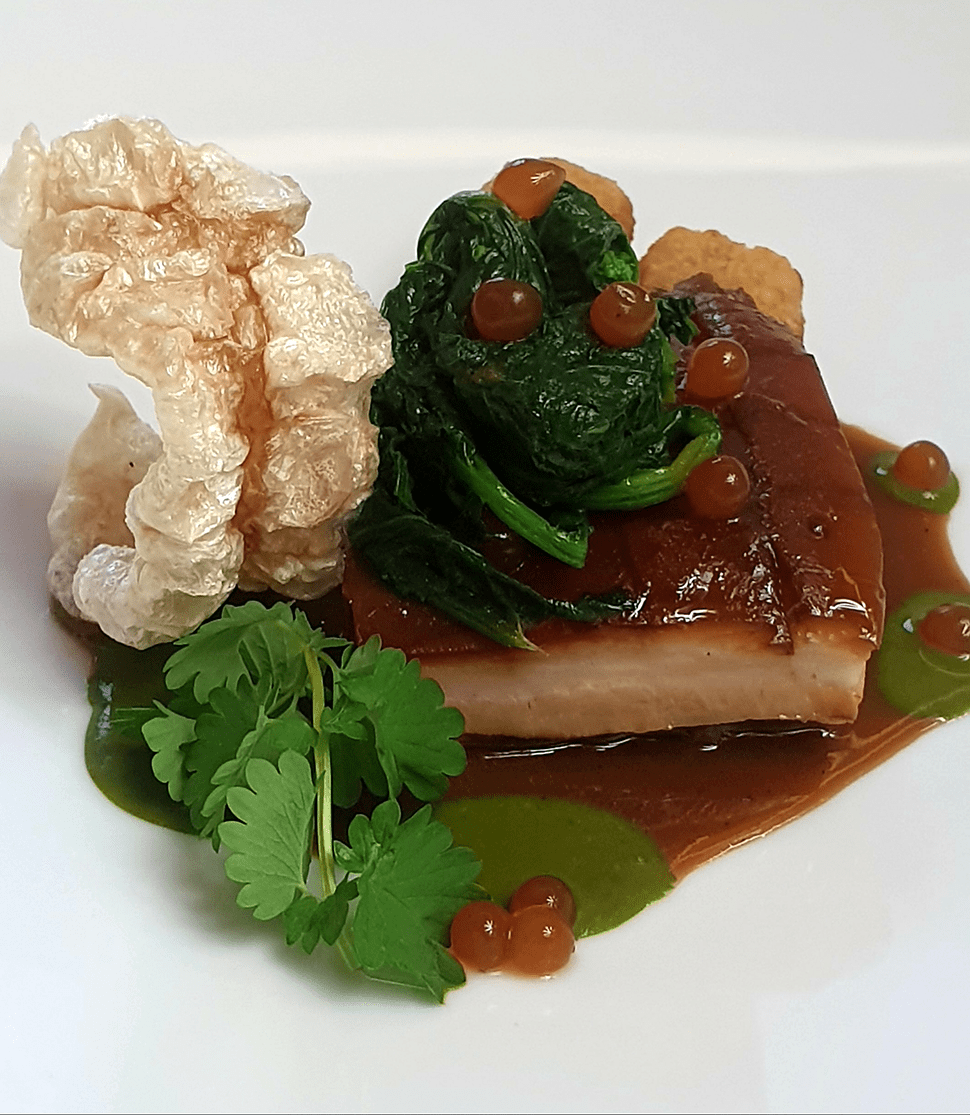
We continue the journey, which goes from the idea of time comes back to theme of space, in form of a pasta dish, fusilloni with creme juane which the chef has created in homage to the world's most poetic city, Paris. The savory tastings end, but before dessert is being served comes an interlude.
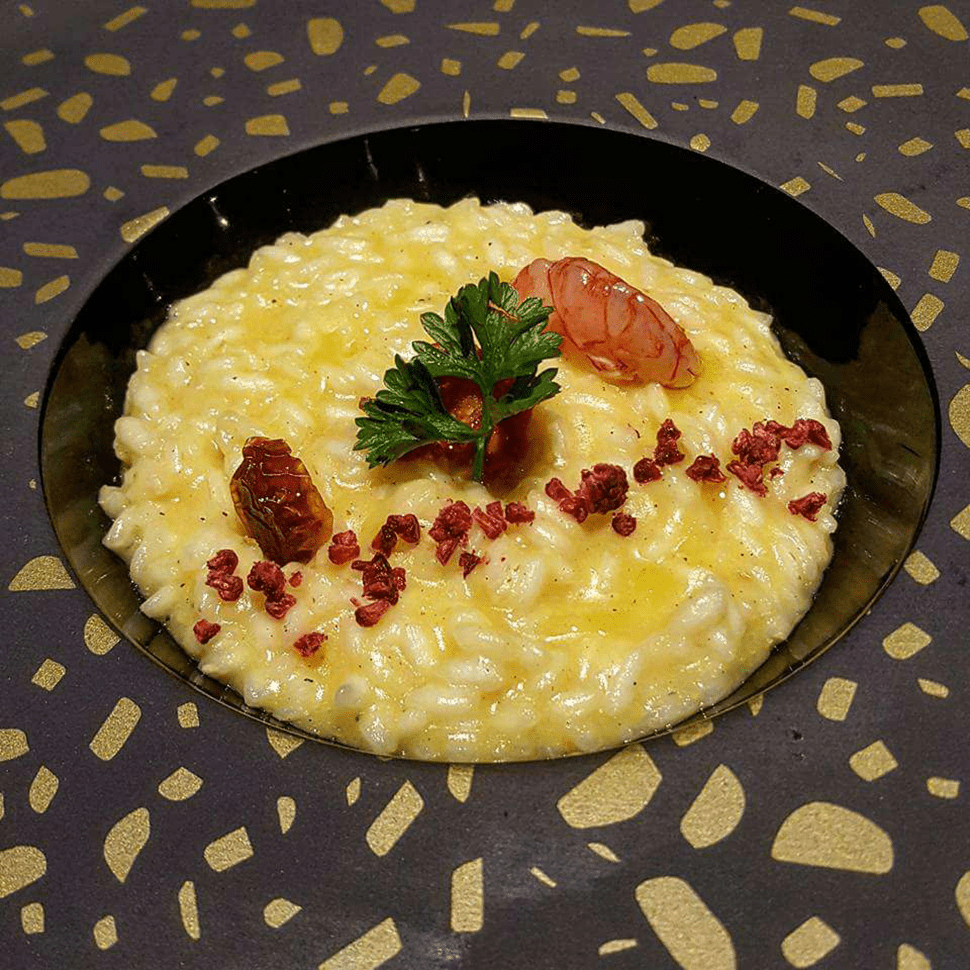
Chef Paolo Gramaglia's pre-dessert is neither an ice cream nor a sorbet but, as he calls it, a jasmine-flavored March snow. A composition of the aloe plant from Cilento in which the natural flavors and sugars of the plant are perceived incredibly; the snow crystals melt in the mouth and prepare for the final taste. The gastronomic journey ends in a sweet way that brings the tasting to Dubai. In the hectic Arab city Paolo Gramaglia was the only European chef to be invited to the Arab World Cuisine Summit. The dessert is called, Sweet is the Night in Dubai, and it is a pristine creation made from local dates, which arrive in Pompeii directly from the Arab city, served on a ground of Modican chocolate and accompanied by a mousse made with the same Sicilian chocolate and dates. Finally, a spiral of soft white chocolate and pomegranate concludes the flavor journey.
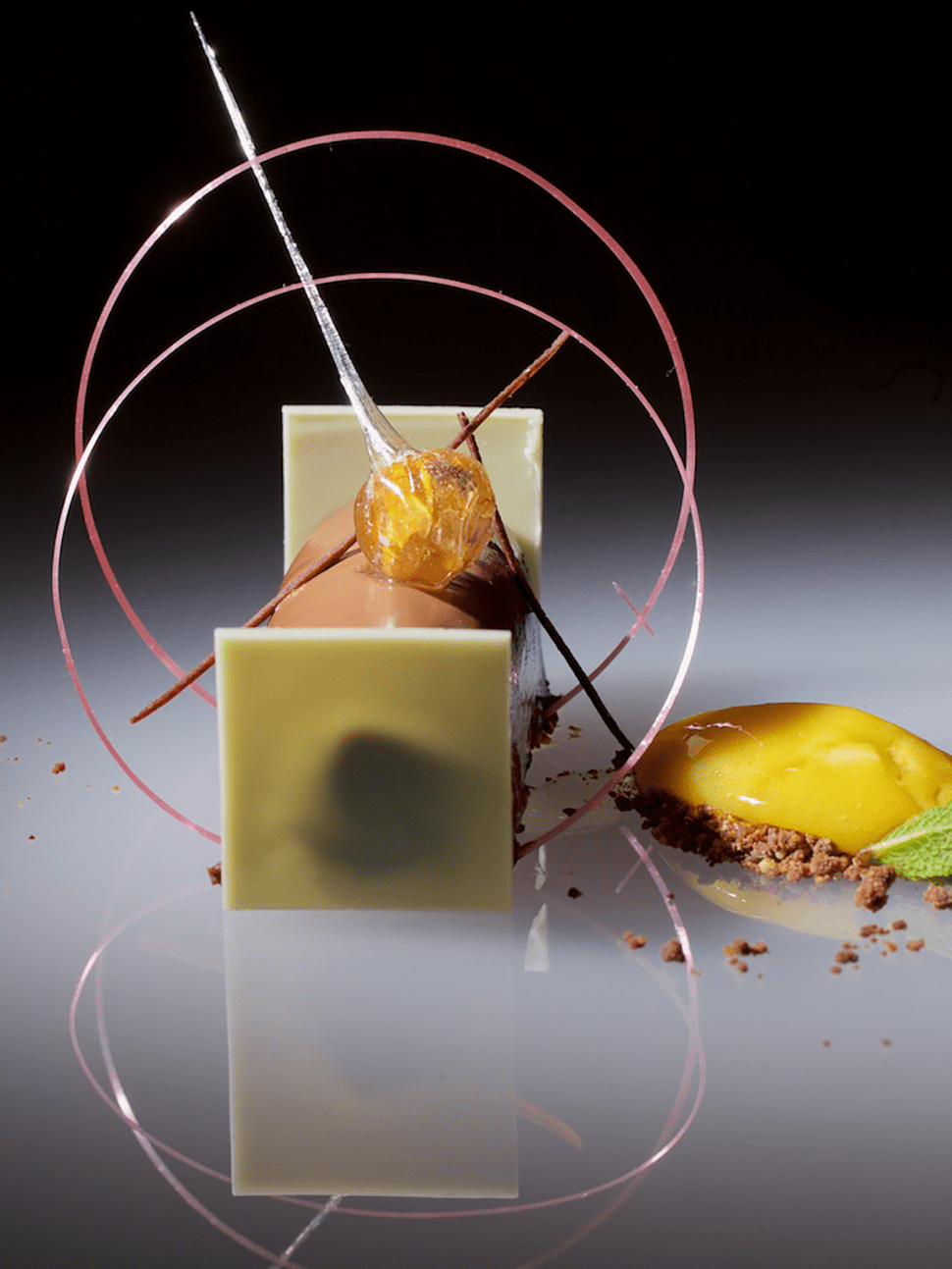
The fruit of Dubai, less honeyed and sugary, stars in the last course in a decisive and elegant way. It concludes the journey with a final geographical destination, capturing the essence of the restaurant in its entirety. The journey is already the President's leitmotif, but for the next menu the chef already has a new creative idea in mind. Everything will revolve around the concept of borders, with many dishes that will take diners across these imaginary lines. Paolo Gramaglia, always hand in hand with Laila, wife and partner in a small place of great culinary excellence
Address
Ristorante President
Piazzale Schettini, 12, 80045 Pompei NA
Tel: 081 850 7245


